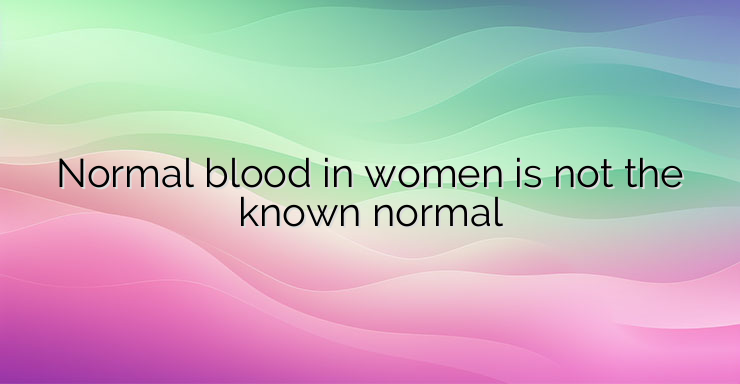Current recommendations for normal blood pressure are 120 to 80 mmHg. A review of several studies shows that a one-size-fits-all approach to men’s and women’s health can be dangerous and prevent timely measures against cardiovascular disease, American experts believe. In the analysis, a group of scientists from the US and Finland looked at data from four large-scale studies of 27,542 people, focusing on changes in blood values. 54% of those included in the analysis are women. According to the research team, the upper limit of normal (systolic) blood pressure in women is 110, not 120 mmHg. At values above 110 mm Hg, the scientists found a risk of developing cardiovascular disorders and pathology. It turned out that women had lower blood pressure thresholds in relation to the occurrence of risk for any specific cardiovascular disease. These results require a rethinking of the existing recommendations in order to prepare effective measures for the prevention and diagnosis of heart diseases in women. The same scientific team found last year that because of the biological and physiological differences in the body of women, they are more prone to various cardiovascular diseases than men. Blood vessels in women, moreover, age faster than in the stronger sex, their research shows last year. The research team’s results broadly match the findings of a national study in the US, which showed a steady increase in heart disease mortality among women since 2010. Until now, it was thought that women were at risk of heart disease after menopause, but analysis shows that in one third of patients, heart disease occurs long before the age of 65. According to Associate Professor Erin Mikos of Johns Hopkins University and lead author of the current study, the worrying trend in women is the result of them often paying too much attention to the health of other family members and neglecting to take care of their own. High blood pressure is considered to be above 140/90 mmHg regardless of gender. Sources: Research Story Tip: Heart Disease Gaining on Cancer as a Major Cause of Death in Young Women, Say Researchers (hopkinsmedicine.org) Sex Differences in Blood Pressure Associations With Cardiovascular Outcomes | Circulation (ahajournals.org) Sex Differences in Blood Pressure Trajectories Over the Life Course | Cardiology | JAMA Cardiology | JAMA Network comparative analysis of premature heart disease- and cancer-related mortality in women in the USA, 1999–2018 | European Heart Journal – Quality of Care and Clinical Outcomes | Oxford Academic (oup.com) Cardiovascular health after menopause transition, pregnancy disorders, and other gynaecologic conditions: a consensus document from European cardiologists, gynecologists, and endocrinologists | European Heart Journal | Oxford Academic (oup.com)


Leave a Reply